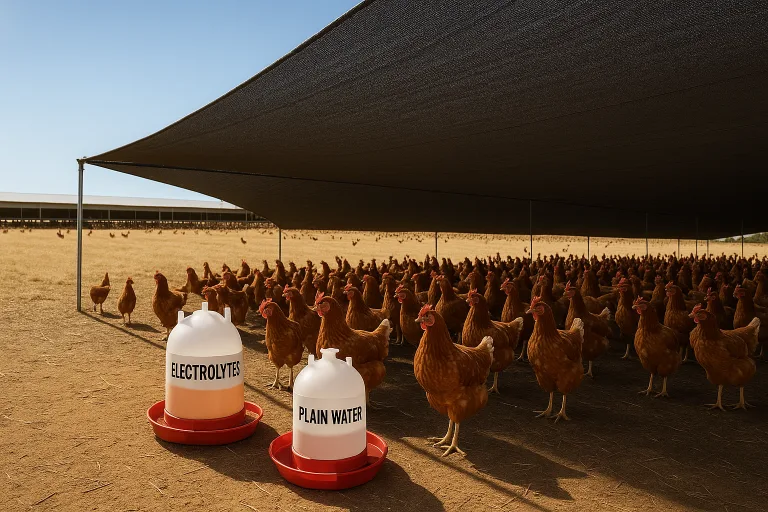Backyard Egg Selling Laws In West Virginia
Imagine standing in your lush backyard, the morning sun casting a warm glow on the vibrant green grass. The gentle breeze carries the sweet scent of blooming flowers, while the melodic chirping of birds fills the air.
Now, picture yourself holding a basket filled with a colorful assortment of freshly laid eggs. As you ponder the idea of selling these eggs, you may find yourself wondering about the laws and regulations surrounding backyard egg sales in West Virginia.
What permits do you need? How should you label your eggs? And what about food safety?
In this discussion, we will explore the intricacies of backyard egg selling laws in West Virginia, ensuring you have all the information you need to navigate this venture with confidence.
Understanding the Legal Requirements
To understand the legal requirements for selling eggs from your backyard in West Virginia, it’s important to familiarize yourself with the state’s regulations and guidelines. Understanding backyard chicken raising is crucial before embarking on this endeavor. West Virginia law allows individuals to raise chickens for personal use, but selling eggs requires adherence to specific rules.
Firstly, you must register with the West Virginia Department of Agriculture as a backyard egg producer. This registration ensures compliance with health and safety standards. Additionally, you must maintain accurate records of egg production and sales, including dates, quantities, and customer information. This information may be requested by the authorities for inspection purposes.
Furthermore, it’s essential to provide clean and sanitary conditions for your chickens. Regularly cleaning their coop and ensuring access to fresh water and proper nutrition is crucial for producing safe and healthy eggs. Additionally, West Virginia law requires labeling eggs for sale with the producer’s name and address.
Lastly, it’s important to note that selling eggs beyond your backyard, such as at farmers’ markets or retail establishments, may require additional permits or licenses. It’s advisable to consult with local authorities or the Department of Agriculture to ensure compliance with all applicable regulations.
Obtaining the Necessary Permits
Before you can begin selling eggs from your backyard in West Virginia, you’ll need to obtain the necessary permits. Here are the steps you need to follow:
- Research local zoning regulations: The first step is to determine if your property is zoned for agricultural activities, including egg sales. Contact your local zoning office or check their website to find out the specific regulations in your area. Some neighborhoods may have restrictions on backyard farming, so it’s important to ensure compliance before proceeding.
- Contact the health department: Next, you’ll need to reach out to the local health department to schedule an inspection. They’ll assess your facilities, including the coop and egg storage areas, to ensure they meet the necessary sanitation and safety standards. It’s crucial to address any potential issues before getting approval.
- Submit the required documentation: Once your facilities pass the health department inspection, you’ll need to submit the necessary paperwork for obtaining the permits. This may include an application form, proof of zoning compliance, and any required fees.
- Wait for approval: After submitting your paperwork, you’ll need to wait for the authorities to review your application. The processing time may vary, so be patient. Once your permits are approved, you can proceed with selling eggs from your backyard.
Ensuring Proper Egg Labeling
Once you have obtained the necessary permits to sell eggs from your backyard in West Virginia, it’s essential to ensure proper egg labeling to comply with regulations and provide accurate information to consumers. Proper egg labeling not only helps establish trust with your customers but also helps them make informed decisions about the eggs they purchase.
One important aspect of egg labeling is highlighting the nutritional benefits of backyard eggs. Backyard eggs are often considered to be superior in quality compared to commercially produced eggs. They tend to have higher levels of omega-3 fatty acids, vitamin D, and vitamin E, which are essential for a healthy diet. By including this information on the label, you can inform consumers about the added nutritional value they can expect from your eggs.
Another crucial factor to consider in proper egg labeling is the importance of egg freshness. Freshness is a key aspect that consumers look for when purchasing eggs. To ensure accurate labeling, it’s crucial to include the date of egg collection or the expiration date on the packaging. This provides transparency and allows customers to make informed decisions about the freshness of the eggs they’re purchasing.
Maintaining Clean and Sanitary Conditions
Maintaining clean and sanitary conditions is crucial when selling eggs from your backyard in West Virginia. To ensure the safety and quality of your eggs, it’s important to implement proper waste management and undergo regular inspections. Here are four key reasons why these measures are essential:
- Preventing contamination: By maintaining clean and sanitary conditions, you can minimize the risk of bacteria or other harmful pathogens contaminating your eggs. This helps protect the health of your customers and ensures the reputation of your backyard egg business.
- Ensuring freshness: Proper waste management, such as promptly removing and disposing of soiled bedding and eggshells, helps maintain a clean environment for your hens. This contributes to the freshness and quality of your eggs, making them more appealing to potential buyers.
- Complying with regulations: Regular inspections are crucial for ensuring that your backyard egg-selling operation meets all the necessary health and safety regulations. By adhering to these requirements, you can avoid legal issues and maintain the trust of your customers.
- Promoting consumer confidence: When customers know that your eggs come from a clean and sanitary environment, they’re more likely to trust the quality and safety of your product. This can lead to repeat business and positive word-of-mouth recommendations.
Complying With Food Safety Regulations
To comply with food safety regulations when selling eggs from your backyard in West Virginia, it’s important to understand and follow the guidelines set by the state’s health department.
Ensuring product traceability is crucial to maintain food safety. Each egg carton should be labeled with the date of collection, the farm name or owner’s name, and contact information. This allows customers to trace the eggs back to their source if needed.
Implementing proper storage practices is also essential to prevent contamination. Eggs should be stored in a refrigerator at a temperature of 40°F or below to inhibit bacterial growth. It’s important to regularly check the temperature of the refrigerator to ensure it remains within the safe range.
Furthermore, eggs should be stored separately from other food items to avoid cross-contamination. Additionally, it’s crucial to regularly inspect the eggs for any signs of spoilage, such as unusual odors or discoloration. Any eggs that don’t meet the quality standards should be discarded.
Selling Eggs at Farmers Markets
Selling eggs at farmers markets can be a profitable venture for backyard egg producers in West Virginia. To make the most out of this opportunity, you need to employ effective pricing strategies and implement marketing and promotion techniques. Here are four key strategies to consider:
- Competitive Pricing: Study the prices of other egg vendors at the farmers market and set your prices accordingly. Aim to offer competitive prices while still ensuring a fair profit margin.
- Bundle Deals: Consider offering bundle deals to attract customers. For example, offer a discount for purchasing a dozen eggs or offer a special deal when customers buy eggs along with other products from your booth.
- Eye-Catching Packaging: Invest in attractive packaging to stand out from the competition. Use labels or stickers with your farm’s logo and information to create a professional and memorable brand image.
- Sampling and Demonstrations: Offer samples of your eggs and showcase their quality and freshness. Consider providing recipes or cooking tips using your eggs to engage customers and entice them to make a purchase.
Selling Eggs Online or Through Delivery Services
When exploring new avenues for selling your backyard eggs in West Virginia, expanding your reach by selling eggs online or through delivery services can be a lucrative option. Online advertising allows you to showcase your eggs to a wider audience, reaching potential customers who may not have access to local farmers markets or grocery stores. By creating an online presence, you can attract customers from across the state and even beyond. Utilizing social media platforms, online marketplaces, and your own website can help you effectively promote your eggs and reach a larger customer base.
One advantage of selling eggs online is the ability to receive customer reviews. Positive reviews can help build trust and credibility, encouraging new customers to purchase your eggs. Additionally, customer reviews provide valuable feedback that can help you improve your product and customer service. By responding to customer reviews promptly and professionally, you can demonstrate your commitment to customer satisfaction and build a loyal customer base.
When selling eggs online or through delivery services, it’s important to ensure the quality and freshness of your product. Proper packaging and shipping methods are crucial to maintaining the integrity of the eggs during transit. By investing in appropriate packaging materials and reliable delivery services, you can ensure that your customers receive their eggs in excellent condition.
Handling Customer Complaints and Returns
Customer complaints and returns should be handled promptly and professionally to ensure customer satisfaction and maintain a positive reputation for your egg-selling business. Here are some key steps to follow when dealing with customer complaints and returns:
- Listen actively: When a customer raises a complaint or returns a product, listen attentively to their concerns. Give them your full attention and show empathy towards their situation. This will help build trust and demonstrate your commitment to customer satisfaction.
- Apologize sincerely: Even if the issue isn’t entirely your fault, apologize for any inconvenience caused. A sincere apology shows that you value the customer’s experience and are willing to make things right.
- Resolve the issue promptly: Take immediate action to address the complaint or return. Offer solutions such as a refund, replacement, or store credit, depending on the circumstances. Make sure to communicate clearly with the customer throughout the process.
- Learn from feedback: Use customer complaints as an opportunity to improve your product quality and service. Analyze the root cause of the issue and implement measures to prevent similar problems in the future. This demonstrates your commitment to continuous improvement and customer satisfaction.
Conclusion
In conclusion, understanding and complying with the legal requirements, obtaining necessary permits, ensuring proper egg labeling, and maintaining clean and sanitary conditions are essential for backyard egg sellers in West Virginia.
Following food safety regulations is also crucial for ensuring the safety and quality of the eggs being sold.
Selling eggs at farmers markets and online or through delivery services requires careful attention to customer complaints and returns.
By adhering to these guidelines, backyard egg sellers can operate within the bounds of the law and ensure the safety and quality of their products.


